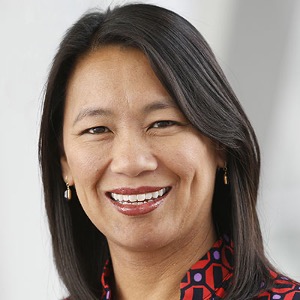New Data on Household Charitable Decision-Making Offers Key Insights for Fundraisers

A new report from the Women’s Philanthropy Institute (WPI) analyzes the first new data in 15 years on household charitable decision-making. As gender norms and family dynamics have changed in recent years, so has the way that couples make decisions about giving.
The findings in Women Give 2021: How Households Make Giving Decisions have significant implications for nonprofits and fundraisers alike. The report signals the importance of understanding varying dynamics of individual households — and engaging them accordingly. Below are the key takeaways from the latest report, paired with actionable insights for the fundraising community:
Changes to how households make giving decisions
In the last 15 years, the number of households making giving decisions together has decreased. Women Give 2021 found that 61.5% of couples make giving decisions together — a decline from 73.4% in 2005. Couples who make joint decisions about charitable giving are typically older and have children under 18, while younger couples are more likely to decide separately or have one partner make decisions for the household. This shift in household dynamics could be attributed to a variety of factors, from more couples marrying later and entering the relationship with existing philanthropic priorities, to shifting gender roles within relationships.
It’s important for fundraisers to understand these evolving dynamics and avoid making assumptions about how couples give. Start by asking your donors about how they make giving decisions currently and how they’d like to evolve or stay the same in the future. There may be an opportunity for you to rethink how to engage both members of the household in individualized ways.
How gender impacts decisions
Among sole deciders, Women Give 2021 found that individuals have varying thresholds for how much they’ll give without consulting their partners. This number is much higher for men compared to women. For fundraisers, this data presents an opportunity to dive deeper into how gender impacts charitable decisions.
Prior research has suggested fundraising appeals that focus on helping others appeal more to women, and that men respond more to appeals that focus on tax breaks and other personal benefits of charitable giving. As you consult with solo deciders, consider how to best position fundraising requests with this in mind.
Finding common ground
For most couples, giving is fairly harmonious. Three out of four couples agree on giving amounts and recipients, and most talk about giving at least a few times a year. That said, most households treat giving as a relatively transactional activity, similar to short-term financial decisions.
If you’re working with couples who choose to make decisions together, how can you ensure that their giving is seen as part of a bigger picture rather than a one-off commitment? How can you ensure their values are reflected in their gifts?
Women Give 2021’s findings have actionable implications for the nonprofit and fundraising communities, which will benefit from a deeper understanding of how households make giving decisions. To help households connect through philanthropy and make a plan for giving back (whether individually or together), WPI has created a Couples’ Giving Plan – a resource that development professionals can share with donors to help them think more strategically about their giving.
To read the full Women Give 2021 report and explore all of WPI’s research, please visit: https://philanthropy.iupui.edu/institutes/womens-philanthropy-institute/index.html.
 Jeannie Sager is the director of the Women’s Philanthropy Institute which is housed under the Indiana University Lilly Family School of Philanthropy in Indianapolis, Indiana. WPI is focused on conducting and disseminating research that grows women’s philanthropy. WPI envisions a world where women donors understand and use their growing power and influence to support causes they care about; where fundraisers and nonprofit leaders take women seriously and approach them in ways that appeal to them; and where both women and men are giving, giving more, and giving more intentionally and effectively. Jeannie leads WPI’s efforts to translate research to practice, works closely with WPI’s national advisory council and serves on the executive leadership team for the LFSOP.
Jeannie Sager is the director of the Women’s Philanthropy Institute which is housed under the Indiana University Lilly Family School of Philanthropy in Indianapolis, Indiana. WPI is focused on conducting and disseminating research that grows women’s philanthropy. WPI envisions a world where women donors understand and use their growing power and influence to support causes they care about; where fundraisers and nonprofit leaders take women seriously and approach them in ways that appeal to them; and where both women and men are giving, giving more, and giving more intentionally and effectively. Jeannie leads WPI’s efforts to translate research to practice, works closely with WPI’s national advisory council and serves on the executive leadership team for the LFSOP.
Jeannie Sager is a seasoned nonprofit executive with 25 years of experience in health care, higher education, and independent school leadership. She most recently served on the leadership team that created the IU Health Foundation providing oversight for fundraising for IU Health’s adult academic health center. Jeannie earned her master's degree in philanthropic studies from Indiana University and a bachelor’s degree in international relations from Rollins College.




